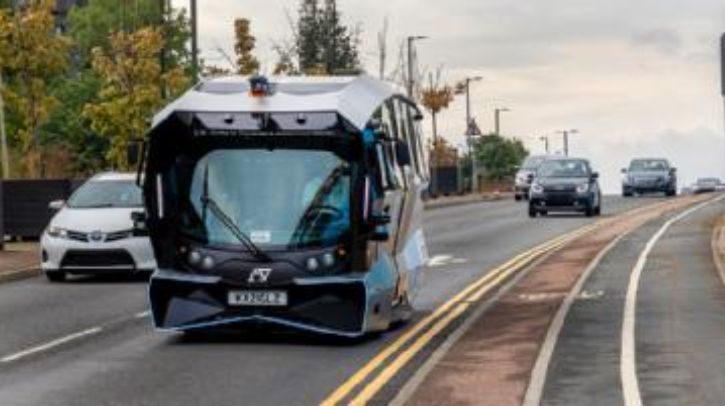A total of £300,000 (US$365,000) to deliver a project looking into the feasibility of a self-driving shuttle service in the West Midlands in the UK has been granted to Solihull council, alongside WMG at the University of Warwick.
The project will explore how a new automated transportation link between Blythe Valley Business Park, and the new HS2 rail station in Solihull could operate in the future.
Further project partners include National Highways, Transport for West Midlands, ZF, Aurrigo, Syselek and Liftango. Some funding comes from these commercial partners, and £197,664 (US$240,000) was granted by the Centre for Connected and Autonomous Vehicles’ Commercialising Connected and Automated Mobility program.
The feasibility study will consider all aspects of the technology required to provide a safe and reliable automated public transportation service. The proposed route would use the existing road network along the M42 from Junction 4 and use the new junction 5a – which is currently under construction.
With capabilities in the verification and validation of safety assurance of self-driving technologies, WMG’s role will be to apply its operational design domain-based (ODD) Safety Assurance research methodologies to specific project challenges.
This project is part of the wider Midlands Future Mobility (MFM) initiative, led by WMG. The MFM vision is to achieve zero road incidents, net-zero emissions and inclusive transportation in the West Midlands.
Councillor Ken Hawkins, Solihull council cabinet member for environment and infrastructure, said: “We’ve already carried out a series of successful pathfinder trials here in Solihull, using our own automated shuttle, and have led the way in showing how it is possible to practically and safely incorporate automated vehicles into our existing transport infrastructure.
“We are now taking the next step and undertaking the vital feasibility work necessary in order to start thinking about more ambitious deployments and establishing new commercial public transport services.”


